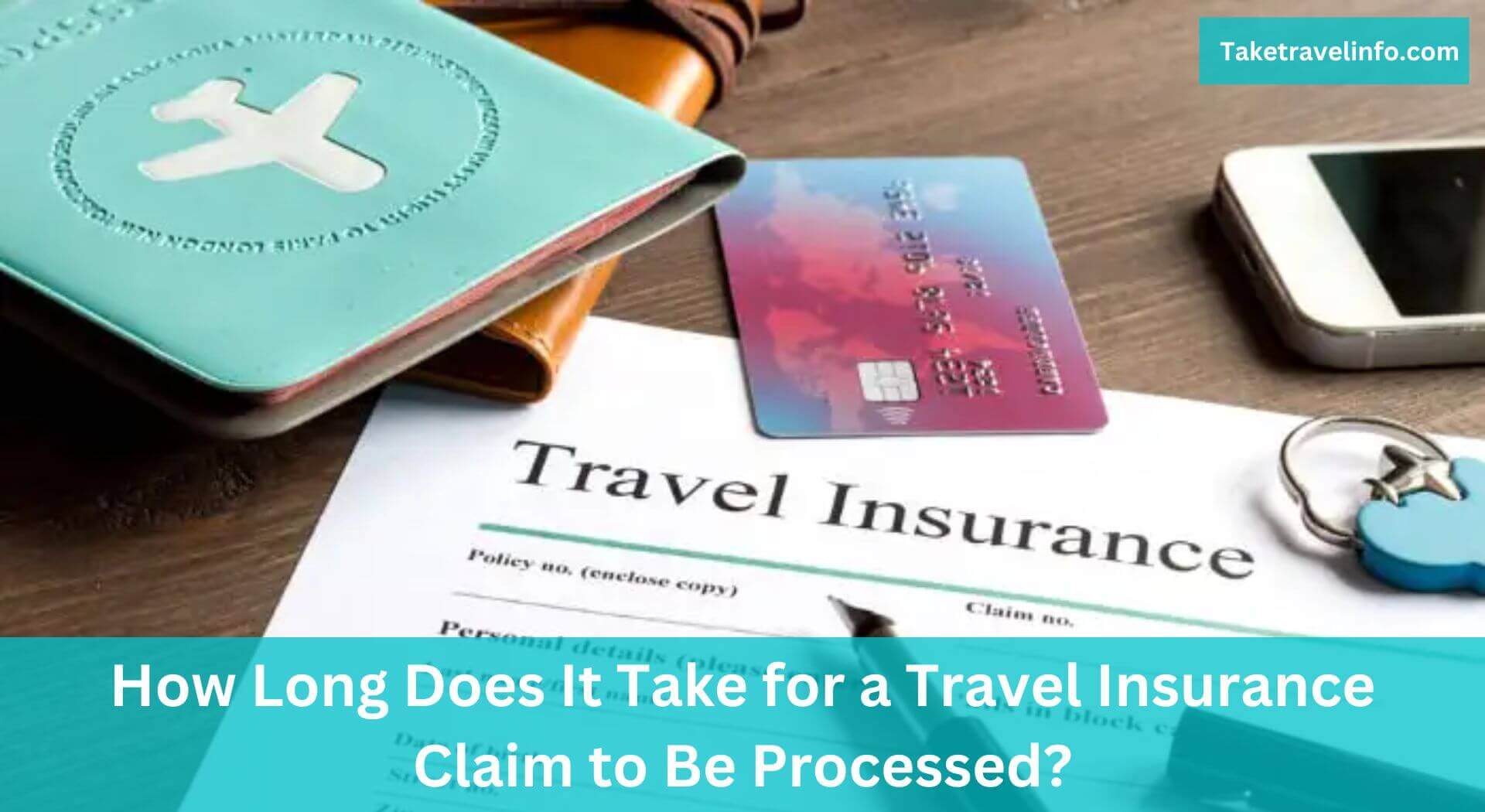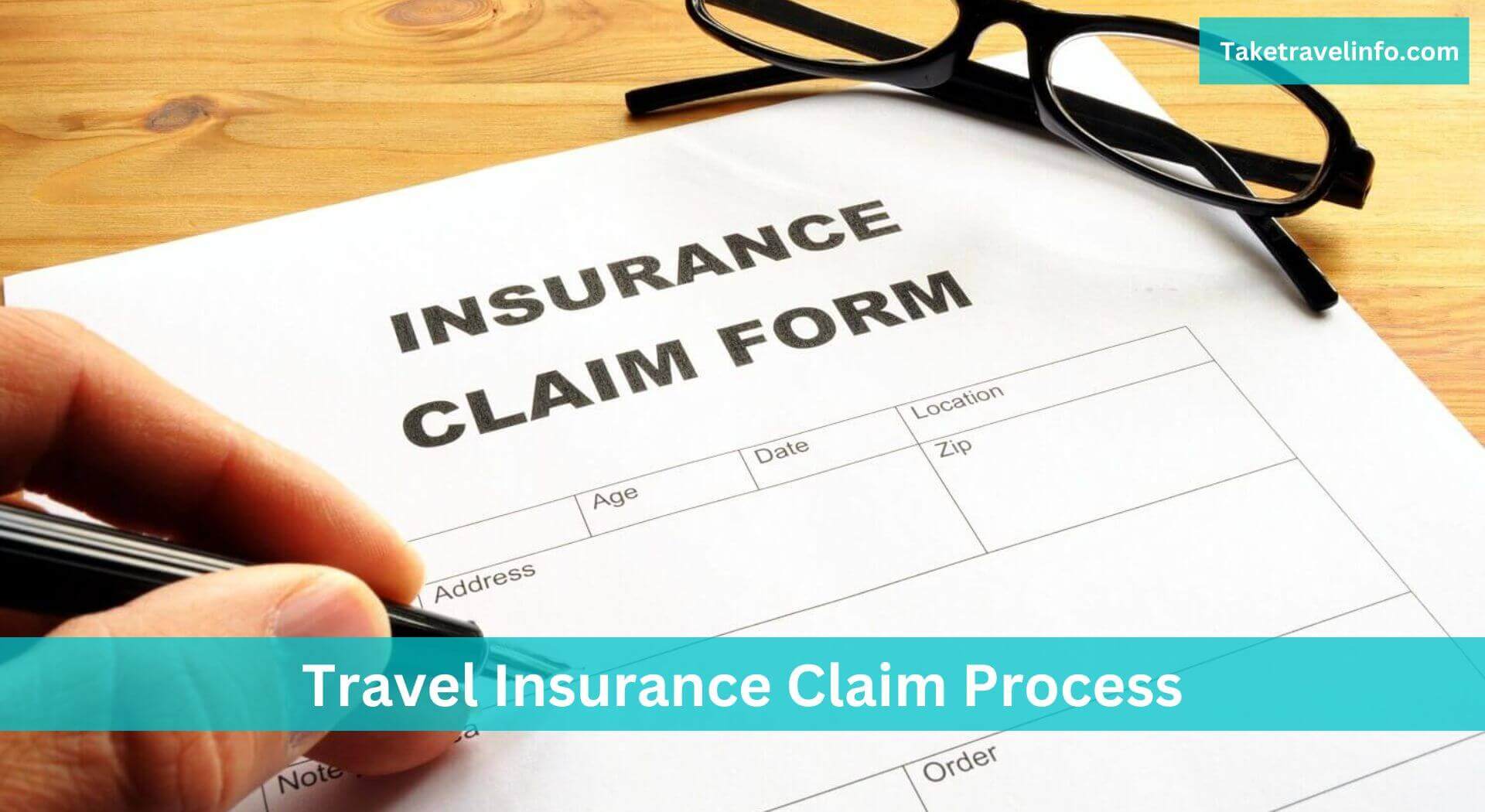It can take a travel insurance claim anywhere from a few days to a few weeks. The time frame is largely dependent on the insurer and the complexity of the claim. Generally, simple claims can be processed fairly quickly, while more complex claims may take longer to investigate and settle.
If you’re planning a trip, you may be wondering how long it will take to get travel insurance. The answer depends on a few factors, including the type of policy you have and the company you’re working with. Here’s what you need to know about travel insurance claims.
Most travel insurance policies have a 24-hour grace period. This means that if something happens to your plans within 24 hours of buying your policy, you’re still covered. After that, most claims are processed within 10 days.
However, some claims can take longer. If your claim is more complex or requires additional information, it may take up to 30 days to process. And if you’re making a claim for lost or stolen property, it could take even longer – up to 90 days – to get a resolution.
The best way to avoid delays in your travel insurance claim is to make sure you have all the necessary documentation when you file. This includes things like receipts, police reports, and doctor’s notes. The more information you can provide upfront, the faster your claim will be processed – and the sooner you’ll get your payout!
How Long Does It Take for a Travel Insurance Claim to Be Processed?

It can take anywhere from a few days to a couple of weeks for a travel insurance claim to be processed. The length of time it takes depends on the insurer, the type of policy, and the complexity of the claim. Insurers will often give you an estimate of how long it will take to process your claim when you first submit it.
Does Travel Insurance Ever Pay Out?
Yes, travel insurance does pay out. However, it is important to remember that there are many factors that will affect whether or not you are able to make a claim and how much you may receive. Some of the most common reasons why claims are denied include: 
-You did not have the right type of coverage for your trip. For example, if you are going on a cruise, you will need to purchase a policy that includes coverage for cancellations due to weather. -You did not purchase your policy early enough.
Most policies have a time frame in which you must purchase them in order for the coverage to be effective. For example, if your flight is canceled due to bad weather, most policies will not cover the cost of a new flight if you purchased your policy less than 14 days before your original departure date. -Your claim is for an event that is excluded from coverage.
For example, most policies exclude pre-existing medical conditions or pregnancy. Be sure to read the fine print of your policy so that you are aware of any exclusions.
Why Would a Travel Insurance Claim Be Denied?
If you’re planning a trip, you may be considering purchasing travel insurance. Travel insurance can protect you from a variety of unexpected circumstances while you’re traveling, but it’s important to understand that there are some situations where your claim might be denied. Here are a few reasons why your travel insurance claim could be denied: 
1. You Didn’t Read the Fine Print When you purchase travel insurance, it’s important to read the policy carefully so that you understand exactly what is and isn’t covered. Each policy has different coverage levels and exclusions, so it’s important to know what yours covers before you submit a claim.
If your claim is denied because it’s not covered by your policy, it may be because you misunderstood the coverage or overlooked an exclusion.
2. You Didn’t File Your Claim Within the Time Limit Most travel insurance policies have a time limit for filing claims, usually within 30 days of the incident that caused the need for insurance.
If you don’t file your claim within that time frame, it will likely be denied. Make sure to keep track of important dates and deadlines related to your policy so that you don’t miss the window for filing a claim.
3. The Incident Wasn’t Covered by Your Policy As we mentioned above, each policy has different coverage levels and exclusions. This means that even if an incident seems like it should be covered by your policy, it might not actually be included in the fine print.
For example, many policies exclude pre-existing medical conditions or injuries sustained while participating in risky activities like bungee jumping or skiing (even if those activities are part of your vacation).
Be sure to check with your insurer ahead of time to confirm whether or not specific incidents are covered under your policy before assuming that they will pay out on a claim.
How Do Travel Insurance Companies Verify Claims?
When you purchase travel insurance, you are buying a protection plan in case something goes wrong on your trip. The last thing you want is to have to file a claim and then find out that your claim is denied because the travel insurance company says it can’t verify what happened. Here are some tips to help make sure your claim is verified: 
– Keep all documentation from your trip including receipts, tickets, itineraries, and hotel confirmations. If something happens, you will need to have proof that you were actually on the trip. – Take photos or videos of any incident that occurs.
For example, if your luggage is lost or stolen, take photos of the empty bag. If you get sick or injured, take photos of the injury. – Get witnesses to write down what they saw happen.
For example, if your wallet is stolen, ask someone who saw it happen to write down a statement about what they saw. These statements can be helpful in verifying your claim. – Contact the police or other authorities if something happens such as a theft or an accident.
Get a copy of any report filed so you can submit it with your claim.
Travel Insurance Claim Time Limit
Most travel insurance policies have a time limit for filing claims. This is usually within 30 to 90 days after the incident occurred. This means that if you want to file a claim, you need to do so within that timeframe. 
There are some exceptions to this rule. For example, some policies may give you additional time if you can provide proof that the delay was due to circumstances beyond your control. But in general, it’s best to file your claim as soon as possible.
The reason for this is that insurance companies will often investigate claims and gather evidence soon after the incident occurred. If you wait too long, they may not be able to get the information they need or verify what happened. This could lead to your claim being denied or only partially covered.
So if you’ve had an incident while traveling, don’t wait too long to file your claim. Check the time limit on your policy and make sure you submit everything within that timeframe.
Does Claiming on Travel Insurance Affect Future Premiums?
There are a few things to consider when answering this question – namely, what kind of travel insurance you have and what the claim was for. For the most part, making a claim on your travel insurance shouldn’t affect your premiums too much, if at all. If you have comprehensive travel insurance, then any claims you make should be covered under the policy. 
This means that your premium shouldn’t go up as a result of making a claim. In fact, some insurers may even offer discounts for customers who don’t make any claims on their policies. However, if you have a basic policy that only covers certain types of claims (such as medical expenses), then making a claim could result in an increase in your premium.
This is because the insurer will view you as being more likely to make another claim in the future and will want to offset this risk by charging you a higher premium. Of course, there are other factors that can affect your travel insurance premiums, such as where you’re traveling to and how often you go on holiday.
But in general, claiming on your policy shouldn’t have too much of an impact on your future premiums.
Claiming Travel Insurance Due to Illness
No one wants to get sick on vacation, but it happens. And when it does, travel insurance can be a lifesaver – literally. If you have to cancel your trip or come home early due to illness, most travel insurance policies will reimburse you for your non-refundable costs. 
But what if you need medical treatment while you’re away? That’s where travel insurance really comes in handy. If you have to go to the hospital or see a doctor while you’re on vacation, your travel insurance will cover the cost of your treatment.
In some cases, they’ll even evacuate you back home if necessary. Of course, every policy is different and there are always exclusions and limits. So it’s important to read the fine print carefully before buying a policy.
And be sure to keep all of your receipts and documentation in case you need to make a claim. If you do get sick on vacation and need to make a claim, the process is usually pretty straightforward. You’ll just need to fill out a claim form and submit it along with any supporting documentation (like medical bills)to the insurer.
They’ll review everything and then let you know if your claim has been approved – typically within a few weeks. So if you’re planning a trip, don’t forget to purchase travel insurance!
Travel Insurance Claim for Cancellation

If you cancel your trip for a covered reason, you may be able to get a refund on your travel insurance policy. To make a claim, you will need to submit a written request within 30 days of the cancellation, along with supporting documentation. The documentation required will vary depending on the reason for cancellation but may include a letter from your doctor or proof of job loss.
Once your claim is approved, you should receive a refund within 7-10 business days.
Travel Insurance Claim Tips
If you’re planning a trip, chances are you’ve already considered purchasing travel insurance. But what happens if you need to file a claim? Here are a few tips to make the process as smooth as possible: 
1. Be prepared. Before you leave on your trip, make sure you have all the necessary documentation, including your policy number and contact information for your insurer. If possible, take photos of any valuables you’re bringing with you so that you have documentation in the event that they’re lost or stolen.
2. Know what’s covered. Read your policy carefully so that you understand what is and isn’t covered. For example, many policies exclude coverage for pre-existing medical conditions or adventurous activities like bungee jumping.
3. act quickly. If something goes wrong on your trip, don’t wait to file a claim. The sooner you submit the necessary paperwork, the sooner your insurer can start processing your claim.
4. Follow up. Once you’ve submitted your claim, follow up with your insurer to make sure everything is being processed correctly.
Travel Insurance Claim Process
If you’re planning a trip, you may be wondering if you need travel insurance. After all, isn’t your regular health insurance enough? And even if you do decide to get travel insurance, what’s the process for making a claim? 
Here’s everything you need to know about travel insurance claims. First, let’s start with the basics. Travel insurance is designed to protect you from financial losses that can occur before or during your trip.
This can include things like canceled flights, lost luggage, and medical emergencies. There are two main types of travel insurance: comprehensive and basic. Comprehensive coverage is more expensive but provides a wider range of protection.
Basic coverage is less expensive but has more limited benefits. Now that we’ve covered the basics, let’s talk about the process of making a claim. The first step is to contact your insurer and let them know that you need to make a claim.
They will then provide you with a claims form which you will need to fill out and return. Once the insurer receives your completed form, they will review it and determine if your claim is valid. If it is, they will begin processing your claim and will send you a check for the amount of money that they have approved.
The entire process can take some time, so it’s important to be patient and follow up with your insurer if necessary. But as long as you have all of the required documentation, making a travel insurance claim shouldn’t be too difficult.
5 Tips for Making a Successful Travel Insurance Claim
Conclusion
A travel insurance claim can take anywhere from a few days to a few weeks, depending on the insurer and the severity of the incident. The first step is to notify your insurer as soon as possible after the incident occurs. They will then send you a claim form, which you will need to fill out and return with any supporting documentation.
Once they receive your claim, they will assess it and determine whether or not it is covered under your policy. If it is, they will begin processing the claim and will keep you updated on its status.

